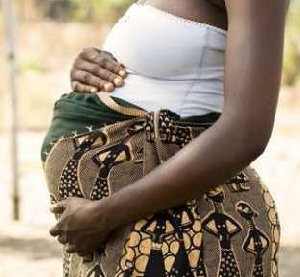The soaring story of maternal and infant mortality in the Northern region is not uncommon just as is the case in many parts of Ghana. Statistics indicate that the region has been recording astronomical maternal mortalities for several decades.
Recent statistics show that the region recorded 132 deaths in 2016, 92 in 2015 and 72 in the second quarter of last year. While many experts have attributed the scary rate of the mortalities to high rate of illiteracy and ignorance in the region, others believe poor road networks and ill-equipped health facilities, lack of information and knowledge on pregnancy care, inadequate nurses and midwives as and over dependence on traditional birth attendants account for the phenomenon.
Although attempts have been made in various quarters to address this social and humanitarian challenge, the most effective and workable so far has been reaching the people with the right information thus to make the information richer or wiser for informed decisions.
In Savana Signature’s quest to utilise the latest innovation in solving development challenges through the use of Information Communication Technology (ICT), it has strategized in dissemination of timely information in varied forms as a major catalyst in addressing maternal and infant mortalities in its operational areas. This is in line with its objective of fighting poverty and marginalisation through the use of innovations in ICT.
Savana Signature’s Interventions
Mr John Stephen Agbenyo, Executive Director of the Savana Signatures explains that the organisation upon a deeper thoughts, realised that knowledge and skills in technology will be of immense benefit to the fight against the alarming rate of maternal mortalities in the country hence the introduction of the Technology for Maternal Health (T4MH) project in 2011 as a pilot project in partnership with the Northern Regional Library Authority in three Health facilities all in the Tamale Metropolis of the Northern Region of Ghana.
The Tamale Teaching Hospital, Central and West hospitals were selected for the pilot project by which some pregnant women attending antenatal services were registered and received text and voice messages on pregnant care and nutrition periodically.
These health facilities also received computers, projectors and other accessories to enable them display educative video documentaries on pregnant care to all pregnant women who attended these facilities for their services.
Following the successes of the pilot project which resulted in easier transmission of informative education and access to timely and needed information, the health facilities implementing the project were increased to six between 2012 and 2014.
In partnership with Salasan Consulting, additional funding was secured from Global Affairs Canada to scale up the project. During this second phase of the project, non-literate beneficiary mothers were given the chance to choose between Dagbani and Gonja when registering for the mobile messaging while the default language for literate mothers remained English. Gonja and Likpakpaanl were then added during the third phase of the project when the facilities were scaled up to 10, all in the Northern Region in 2015.
To save more lives, the Technology for Maternal and Child Health (T4MCH) was introduced as a scale up of the Technology for Maternal Health (T4MH) designed to address lingering new born care as well as reduce infant and maternal mortalities that have long been plaguing the health and lives of thousands of households.
It is being implemented in the Northern, Upper West and Volta Regions where nine districts and 33 health facilities are benefiting. The project is expected to reach 580,000 adults and their households in the project areas within the four-year implementation period of the project spanning from 2016 to 2020.
The project is quite ambitious for immediate outcome to enhance delivery of essential health services to pregnant women and new mothers and also to advance on the utilisation of essential health services by pregnant women and newborns.
The tacit objective is not only to contribute significantly at reducing maternal and new born mortalities in the project districts, but to positively improve the health of the new born and lactating mothers for them to become meaningful resources to the nation and their communities. This is in line with Sustainable Development Goal 3 (SDGs) which is aimed at reducing global maternal mortalities ratios to less than 70 deaths per 100,000 live births by 2030.
Making impact?
Ambitious to make impact, the T4MCH project has increased the number of local languages and more would be added to the voice messaging component in order for beneficiary women and their partners to be able to receive messages in their preferred languages.
The strategies of the project include; mobile messaging (SMS and Voice calls), Knowledge Sharing Session, Electronic Charting, the Mother’s Story and the Research Fund. These strategies are receiving results as Mr Zakaria Muhaideen, a resident of North Gonja who benefited from T4MCH, commended Savana Signatures for the innovations explaining that without Savana Signatures, he would have been childless since his wife had five miscarriages but with the help of T4MCH procedures, his wife was able to deliver without difficulties.
Muhaideen who was full of praises said, “I am very grateful for the support they gave me which helped my wife to deliver a bouncing baby boy…if I have money, I will support them to continue their good works”. Mr Muhaideen entreated people especially pregnant women to take Savana Signatures sms and voice messages seriously saying that when couples adopt the methodology, they would have stress free delivery.
Innovative Strategies
One of the major strategies is the use of the mobile phone as channel of voiced and text messages to parties involved. Firstly, pregnant women are registered by the selected health institutions to benefit from the information shared. The mobile messaging is the transmission of maternal and child health information by SMS and voice calls to mothers through their mobile phones. The SMS messages is transmitted in the English language whiles the voice calls are in over ten different local languages, made up of; Gonja, Dagbani, Ewe, Dagaari, Sisali, Twi, Likpaakpal, Brifo, Tampulima, Kotokoli and Hausa. The messages are received starting from the fifth week of pregnancy and ends on the sixth month of exclusive breastfeeding of the newborn babies. The maternal and child health messages include; content on nutrition, foetal developments, danger signs in pregnancy, exclusive breastfeeding which are essential for child and mother care and antenatal reminders.
Another unique strategy yielding positive results is the knowledge sharing session (KSS). This strategy introduces technological innovations to existing health talk sessions held in health facilities.
The sessions are not only conducted within health facilities but also in communities where women share their experiences to their peers to illicit interactions among themselves to improve sensitisation on maternal and child health where traditional birth attendants participate to acquaint themselves and provides platforms for health staffs and clients to interact and promote experience sharing and learning among women.
Additionally, technology charting and mother’s story are other strategies. Technology charting, is used to capture and manage data at the antenatal and postnatal centres with the hope of scaling the successes.
An interesting part is the mother’s story which a documentary video is showcasing some women’s true social life stories regarding their daily lives and the information is shared with the GHS to strengthen the relationship of health staffs and women.
The information may be used by the GHS to inform policies and strategies that target women in maternal and child health service delivery and there is also father-to-father group session aimed at influencing existing gender relations and raising men’s conscience about gender inequalities and its effect on maternal and child mortalities and morbidities.
Recommendations
Counting on the remarkable achievements chalked in the implementation of Technology for Maternal and Child Health (T4MCH) project within its few years of implementation, it is imperative for health providers and policy makers to re-consider their strategies towards infant and maternal health policies in Ghana by introducing the innovations in the project.
The world is fast incorporating curative care with social psychological strategies that demands the behavioural change strategies with technology such as used in this project.
Reverend Sister Georgina Quashie, Administrator of the St. Joseph’s Hospital at Nkwanta in the Volta region who lauded the initiative of T4MCH project, suggested the need for it to be incorporated into the Ghana Health Service’s nationwide healthcare delivery strategies.
Again, Mr David Bukari, Acting District Director of Health for the Sawla-Tuna-Kalba district who attributed the zero incident of maternal mortality for two years in the district, suggested re-tooling of health service strategies with incorporation of technology since it was key in contemporary times.
Given the current statistics, Ghana must re-double its efforts by bringing all actors and ideas on board in order to achieve the SDG 3 targets in 2030.
Opinions of Monday, 16 April 2018
Columnist: George-Ramsey Benamba/Paul Achonga Kwode
Technology is a necessity in curbing maternal mortality in Ghana
 Many experts have attributed the increasing rate of moralities to high illiteracy rates among others
Many experts have attributed the increasing rate of moralities to high illiteracy rates among others














